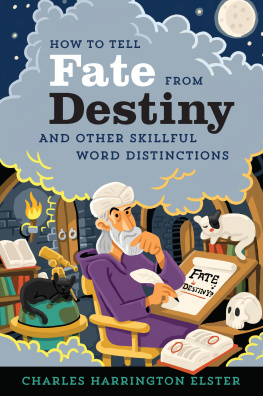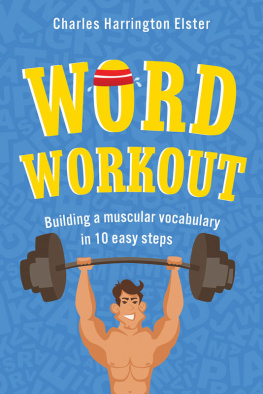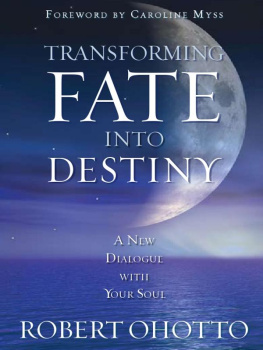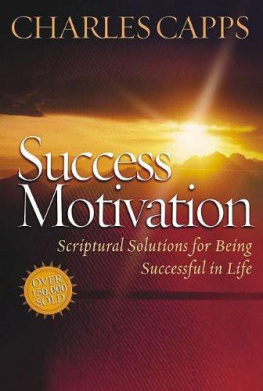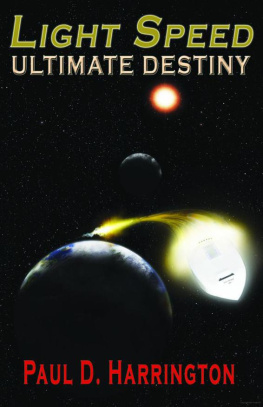Copyright 2018 by Charles Harrington Elster and Myrna Zambrano, Trustees of the Zambrano Elster Family Trust dated July 22, 2017
Illustrations copyright 2018 by Chi Birmingham
All rights reserved.
No part of this work may be reproduced or transmitted in any form or by any means, electronic or mechanical, including photocopying and recording, or by any information storage or retrieval system without the prior written permission of Houghton Mifflin Harcourt unless such copying is expressly permitted by federal copyright law. For information about permission to reproduce selections from this book, write to or to Permissions, Houghton Mifflin Harcourt Publishing Company, 3 Park Avenue, 19th Floor, New York, New York 10016.
www.hmhco.com
Library of Congress Cataloging-in-Publication Data is available.
Cover illustration Chi Birmingham
Cover design by Martha Kennedy
e ISBN 978-1-328-58323-9
v1.0918
In memory of my parents,
Reinhardt Elster, Jr. (19142015) and Nancy Carr Elster (19202011),
with love and gratitude,
especially for teaching me all those words.
Introduction
Quick, answer these questions: Whats the difference between a compendium and an abridgment? How about the difference between an epidemic and a pandemic, a verdict and a ruling, a simile and a metaphor, or an emoticon and an emoji?
Can you distinguish the verbs to imitate and to emulate, the relative pronouns that and which, or the adjectives pliant, pliable, and supple? Do you know whether it should be hone in or home in, pled or pleaded, loath or loathe, recur or reoccur,rotate or revolve, or sanguine or sanguinary? And do you know whether youre eating Welsh rabbit or Welsh rarebit?
If you dontor even if you kind of doHow to Tell Fate from Destiny and Other Skillful Word Distinctions will help you sort it out and make the right choice. (More reliably and entertainingly than Wikipedia!)
Think of this book as a combination of a thesaurus, chock-full of perspicuous and perspicacious synonym discriminations (like perspicuous and perspicacious), and a usage manual, replete with advice on how to differentiate commonly confused words and steer clear of verbal trouble.
Why do we need these fine distinctions? Because they clarify the mind and general discourse. Who decides how or how not to make these distinctions? We all do, whether or not were thoughtful about what were expressing, and whether or not were sure that were using whether or not correctly. But thoughtlessness is the norm that only breeds confusion, and I have written this book in the hope of dispelling some of that fog.
For example, if you peruse these pages you will find out whether you are actually perusing or just browsing them. You will find out whether you are done or finished, whether you are seedy or seamy, whether you are a sociopath or a psychopath, and whether you have Alzheimers or dementia. And youll learn all that before you have dinner or supper, and long before you wind up in limbo or purgatory. But before you surrender or capitulate to someone who may have no sympathy or empathy for you, ask yourself whether you have a definite opinion about it or a definitive opinion about it. Am I being too simple here, or too simplistic? Do you have a hypothesis or a theory about that?
Whether youre a boomer, a Gen-Xer, or a millennial, if you peruse, browse, or even skim these spindrift pages you will (not shall) become versed in the fine art of differentiation. You will learn, for example,
- how to tell whether youre a who or a that
- how to tell whether you suffer from pride, vanity, or hubris
- how to tell whether youre contagious or infectious
- how to tell if youre pitiful or pitiable
- how to tell if youre astonished or surprised
- how to tell if youre self-centered or self-absorbed
- and how to live an ethical life in a moral universe.
I hope the painstaking distinctions in these pages will energize, not enervate you, and that you wont forgo (or forego?) this fortunate (or fortuitous?) opportunity to become not only more skillful in your choice of words but perhaps also a professional distinctioneer.
Charles Harrington Elster
San Diego, California, October 2017
A
a , an
The general rule is simple: Use a before words that begin with a consonant or consonant sound (including y and w): a bird, a lesson, a yolk, a word. Use an before a vowel or vowel sound: an egg, an idea, an orange. But in his excellent guide, Right, Wrong, and Risky, Mark Davidson reminds us that its the sound more than the initial following letter that matters: Whether the first letter of the word being introduced is a vowel or consonant is not decisive; what matters is the sound.
Thus, its a uniform, a U.S. passport, and a yodel, because those words begin with the consonantal y sound. By contrast, its an NBC show, an IRA, an SUV, and an RBI because all those initialisms begin with vowel sounds: NBC begins with en; IRA begins with the long I sound of eye; SUV begins with ess; and RBI begins with ahr.
And if youre unsure whether to use a or an before certain words beginning with h, remember this: If the h is sounded, use a. If it is silent, use an. For example, use a before humble, hilarious, hysterical, habitual, heroic, hallucination, hereditary, huge, hotel, and homage (so spelled, and properly pronounced HAH-mij), as well as before history, historic, historical, and historian. Use an before honor, hour, heir, and herb, where the h is silent. (The British often sound the h in herb, so its okay for them to say a herb.)
Some writers and speakers are tempted to use an before historian, historic, and historical because the first syllable is unstressed and the h is sometimes not distinctly pronounced. But unless you speak the Cockney dialect the h is far from silent, so, despite what you may hear from educated people and sometimes read in edited writing, a should properly precede historian, historic, and historical.
Modern authorities on usage and pronunciation overwhelmingly favor this rule of h. Its sensible and speech-friendly, its based on well over a century of good usage, and if you follow it, no one can ever accuse you of affectation.
ability , capability
The difference between these words is the difference between performance and potential, between doing something and doing something more.

